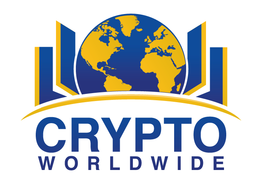The End of Censorship: The Blockchain
Today, you can register anything you want onto the blockchain in a way that makes it public or private via Factom or Tierion. The data you store on the blockchain is immutable, or in other words, unchangeable. Now, put any kind of paper with any kind of claims and arguments in it on the blockchain and it can never be removed. It may never be read and cared about, but it can never be censored, so the ideas that people do care about will remain available no matter what. This ends the age old philosophical debate of whether or not we should have free speech because whether we should or shouldn’t, we now do and it cannot be stopped.
Factom is a company that works as a layer on top of the Bitcoin blockchain which securely stores data in the blockchain. You have the option to store data privately, accessible only via private keys, much the same as how you spend bitcoin. You can also store data in the blockchain in a way that is public to the world. Once the data is stored, it’s immutable, meaning it cannot be removed, rewritten, or altered in anyway. For a more technical understanding of how Factom works, check out their white paper.
Tieron works in a similar way, only with a different business model. However, for the purposes of this article, you only need to know that both these companies allow us to store data securely on the blockchain in a way that is accessible by the public. You can find Tierion’s white paper here too.
Now, no matter what laws around free speech we have, people can have free speech. The problem is, there’s still no guarentee that you won’t face consequences for the things you say, so beware of those risks. In a way, you can think of it like a tattoo, you should carefully think about and plan out what tattoo you want to put on your body if at all. Sometimes it’s best not to get tattoos. The point being, whether a lot of consideration went into getting a tattoo or not, the tattoo is permanent (I know you can now get them laser removed, but grant me this analogy). Think about what you say with utmost care and consideration before you do something such as publishing it on the blockchain because once it’s there, it’s there forever. Once it’s published, you can only add to it.
History is littered with bits and pieces of recorded information, but our history will be composed of rich data that will produce an unprecedented, clear and much more precise picture of what the world of our days looked like, for those future curious minds.
The idea that the blockchain promotes free speech immutably is credited to Chris Ellis, an early-days Bitcoiner, and a modern philosopher. The entire premise of this article came from his talk during the “Burd on the Wire – Episode 1,” where Chris delves into some fantastic ideas. If you have the time, I highly recommend you watch the show. The specific reference relevant to this article starts at 38:52 and ends at 40:27.
Via: http://www.cryptoworldwide.com/general-topics/the-end-of-censorship-the-blockchain
The information provided herein is the author’s opinion and provided for entertainment purposes only. While the author strives to make the information on this website as timely and accurate as possible, the author makes no claims, promises, or guarantees about the accuracy,


